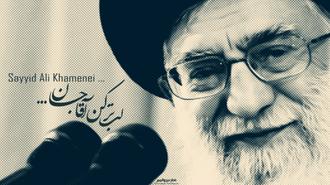The Number of the Shi‘a Imams
As we know, the true Twelver Imami sect is called “twelver” (ithna `ashariyya) since its followers believe that after the Holy Prophet (peace be upon him and his family), his successors were twelve people. And among all of his ‘ummah (community), they are the sole group who hold this belief; thus, the traditions about the twelve Imams which both Shi‘a and Sunnis have narrated – and whose origin from the Prophet (peace be upon him and his family) is undeniable – can only be applied to the Shi‘a sect among all Muslims. Naturally, the true sect will be limited to this group. In spite of all this, it is said that from some traditions – a few of which have been narrated in the book of Sulaim – it is possible to understand that the number of the Imams is thirteen, and this view has also been attributed to Ibn Sahl al-Nawbakhti. If, as it is said, a tradition with this content exists (or if Nawbakhti himself held this view, though this appears unlikely), how can it be explained and affirmed?
Answer:
We have given sufficient explanation about the tradition or traditions that indicate that the number of Imams (peace be upon them) is thirteen in the treatise “Clarity of Vision for One Who Follows the Twelve Imams.” There, we have clarified that the a tradition with this meaning does not exist; moreover, even if such a tradition were to exist, it is a tradition with a single narrator and with regard to principles of religion, beliefs, and issues in which attaining certainty is essential, traditions with single narrators are not relied upon.
In such an instance, only a firm rational argument or a tradition that is consecutively narrated (mutawatir) and certain to have originated from an infallible can be relied upon.
Furthermore, traditions that are mutawatir and have even passed the limits of tawatur (consecutive narration) indicate that the number of the Imams is twelve. In such a situation, if a single non-certain tradition is found in opposition to all these traditions, what creditability can it have, and how can a researcher rely on it? In addition, in the Musnad of Ahmad alone, it has been narrated through thirty-odd chains of narrators from the Noble Prophet (peace be upon him and his family) that the number of Imams (peace be upon them) is twelve, and in the Sahih of Muslim this point has been narrated through eight chains, and likewise in the remaining collections, Sahihs, Sunans (books of the sunnah), and books of the Ahl al-Sunnat, this topic has been referred to numerous times.
In Shi‘a books as well traditions have been narrated with hundreds of chains that the Imams will be twelve, all of which were narrated by well-known companions and followers (tabi`in) up to two centuries before the birth of the twelfth Imam Mahdi (may Allah hasten his return) (peace be upon him), and in reality this is counted as a type of









